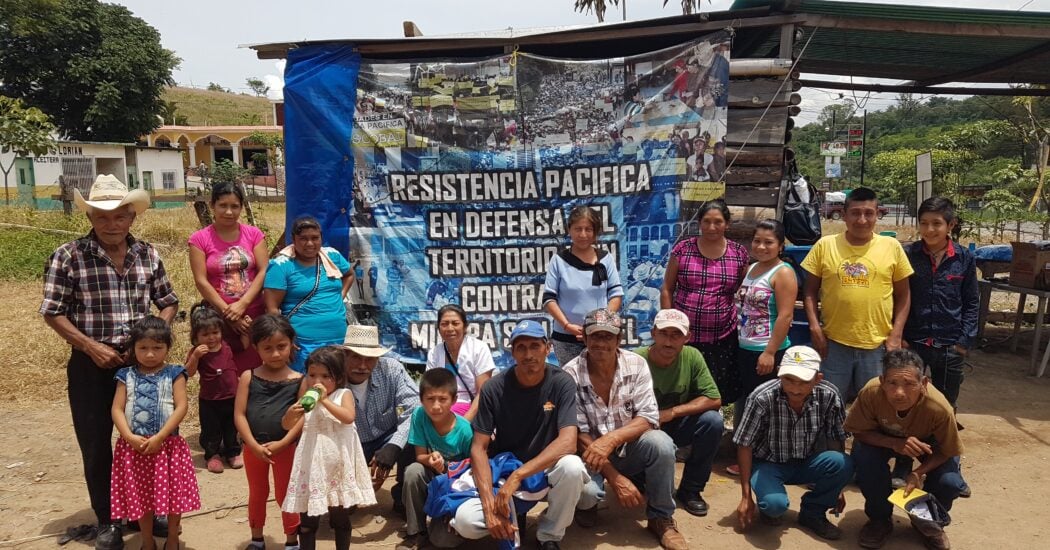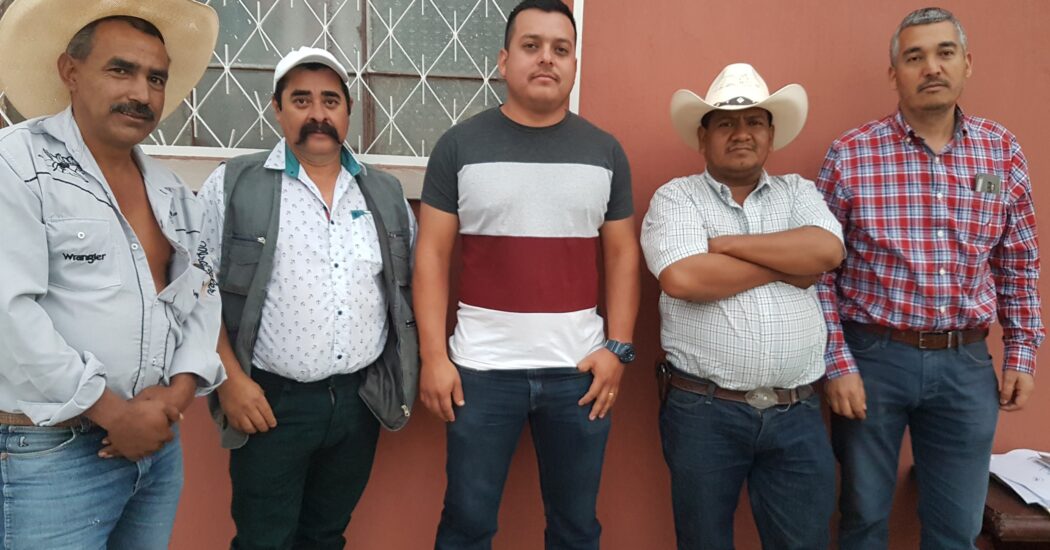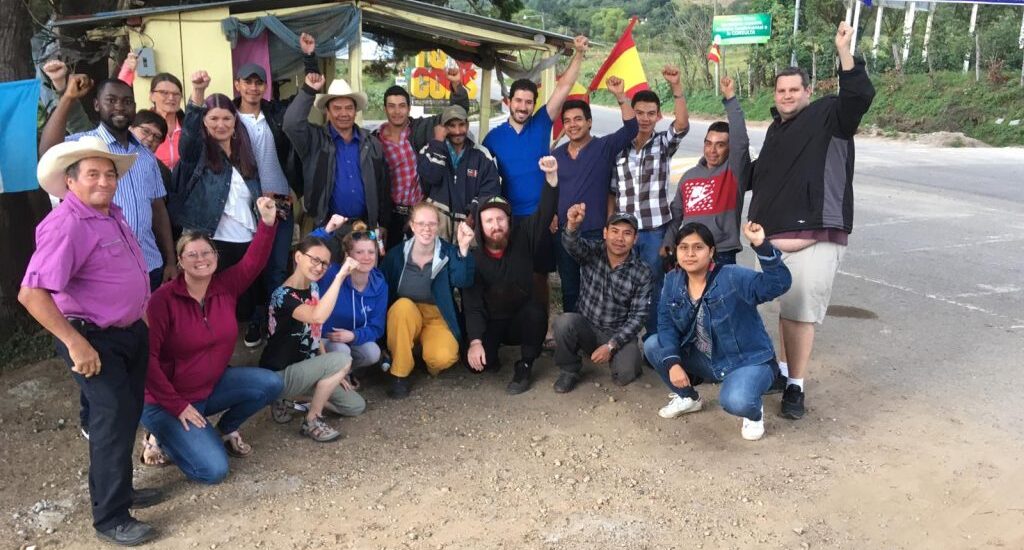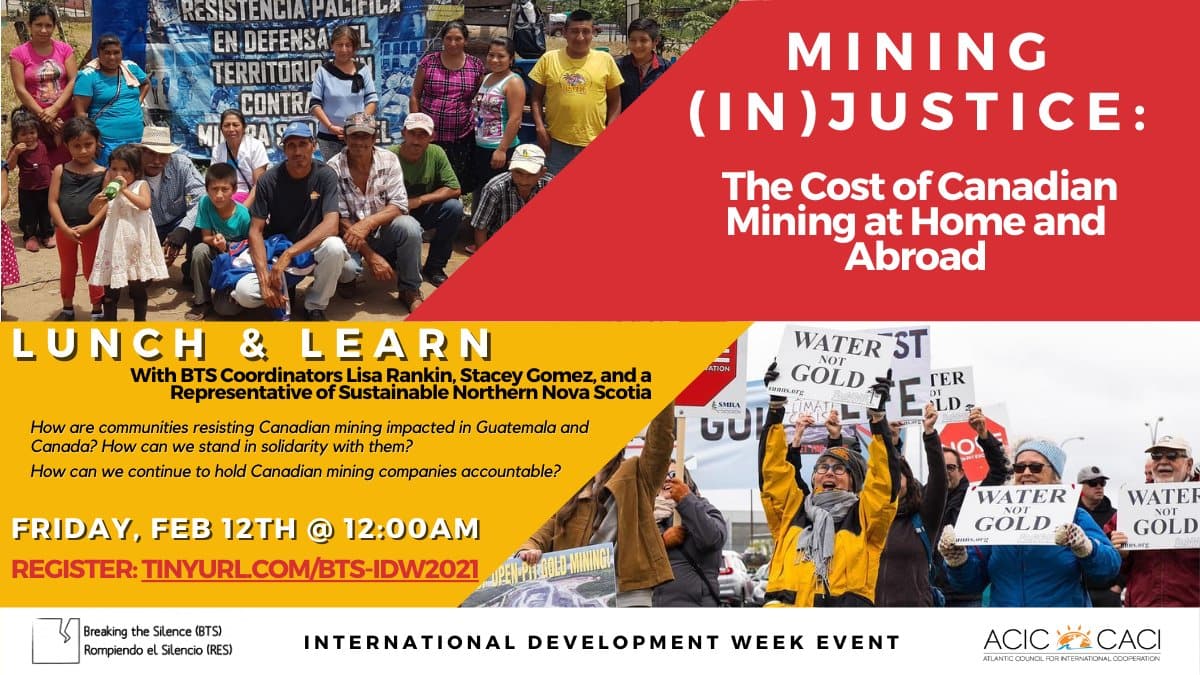
KJIPUKTUK (Halifax) – The story is a familiar one here in Nova Scotia. With full support of the government and without meaningful consultation a precious metal mine is built in a community, leaving residents worried about blasting, water quality and other environmental concerns.
The same thing is happening in Guatemala, only more brutally so. A Canadian-owned mine is vehemently opposed by local Xinka communities, and the powers that be aren’t happy about it.
In 2013 mining guards shot at community members participating in a peaceful protest outside the mine’s entrance, seriously injuring seven protesters. Just a few weeks ago Xinka human rights defender Julio González suffered an assassination attempt in his home.

“The story of Julio González really encapsulates the entire story of the mine. González has been a vocal opponent of the project since the very beginning,” says Lisa Rankin.
Rankin is a member of the Maritimes-Guatemala Breaking The Silence Network (BTS), a group of Maritime activists who support the Xinka resistance to the mine and try to amplify their voices internationally. She lives in Guatemala, but when we speak she is back in Halifax.
“Because of his opposition Gonzalez has received numerous threats, he faced trumped up charges, he has this long history of being outspoken and suffering a lot of attacks and intimidation because of it,” Rankin says.
On January 16 he was shot in his home by two unknown assailants. He was injured in the attack but survived. That very same day two other outspoken opponents received calls and text messages saying that they would be next, Rankin tells the Nova Scotia Advocate.
Then just last Sunday Luis Fernando Garcia Monroy, another opponent of the mine and a member of the Xinka parliament was threatened in his community. He was also one of the wounded during the 2013 attack.
The Escobal mine, the reason behind all this friction and violence, is an underground silver project in the department of Santa Rosa in southeastern Guatemala. Tahoe Resources brought it into operation in 2014, but operations have been suspended since mid 2017 when Guatemala’s Supreme Court decided that the local Indigenous population was not consulted. The mine was acquired by Vancouver-based Pan American Silver in 2019. Court-ordered consultations are progressing, albeit very slowly, with mining proponents raising obstacles at every step.
The Xinka people are a distinct Indigenous group with their own unique culture. They follow their own traditional laws and decision mechanisms, and land is communally owned, Rankin says.
“The main concern of the Xinka people is around contamination of the water. This is a primarily agricultural area, much of Guatemala’s vegetables and coffee exports come from that region. People are also worried about the threats to their way of life, to their culture, and their sacred sites. Another huge concern is around community division, and the impacts that this project has had on the resulting violence. There’s really been an uptick in violence in the region since the establishment of the project,” says Rankin.
Pan American Silver is considered a “client” of the Trade Commissioner’s Office at the Canadian Embassy. Canadian governmental involvement in the project has been a huge factor, says Rankin, and usually not for the better.
“Just days after the 2013 attack that injured seven, the Canadian ambassador was cutting a ribbon at the mine,” she says. “Really, there’s no way that the Canadian Embassy didn’t know about the shooting.”
The roots of BTS in Nova Scotia and the Maritimes run deep

For years BTS has been engaged in solidarity with Xinka communities resisting this project. This has included delegation visits from the Maritimes, speaking tours with Guatemalan land defenders in our neck of the woods, and physical human rights accompaniment from Maritimers. BTS also strives to make a connection between Indigenous struggles for land defense in Guatemala and Mi’kma’ki.
“BTS has staff on the ground in Guatemala to support our partners, including the Xinka parliament. In non-Covid times we provide physical accompaniment, so we visit the encampments, people’s homes, we travel with them and attend hearings and court cases. When anyone is arrested for the attacks against human rights defenders, we also do advocacy with the Canadian government, the Guatemalan government and pressure Pan American Silver to respect human rights and the consultation process,” Rankin explains.
“We always think of it as using our privilege as Canadian to help, to be present, and help deter further attacks. These days Guatemala has been severely impacted by the pandemic leaving the Guatemalan government unable to respond to the needs of communities in this time. Companies like Pan American have seen this as an opportunity to wedge in and try to influence community members,” she says.
The roots of BTS in Nova Scotia and the Maritimes run deep.
BTS started back in the 1980s, through the efforts of Kathryn Anderson Anderson, who came to the Tatamagouche Center and asked to make solidarity with Guatemala a part of that work, Rankin says.
In the 1980s the internal armed conflict was coming to an end, and folks wanted to return to their communities in Guatemala from southern Mexico. They asked for international human rights accompaniment to physically cross the border and return to their communities. BTS saw this as an opportunity through accompaniment, and then later through human rights delegations to continue to work with refugees.
The internal armed conflict ended in 1996, but this didn’t mean that justice was going to be served. So BTS continued its efforts, and began to have volunteers on the ground in Guatemala. Then in 2004, we began to learn about the impacts of Canadian mining in Guatemala, and that also became a priority of our work, says Rankin.
We have delegations of people from the Maritimes that go to Guatemala every year, well, not this year, but every normal year. And we have speaking tours of folks from Guatemala who come up twice a year, to talk about their work in Guatemala, to build those relationships, build those connections. Because we do see a responsibility as Canadians and as global citizens to support the struggle for justice,” she says.

Follow BTS on Facebook. Much more information on the Indigenous resistance to the Escobal mine project can be found here. Support an emergency fund for the family of Julio González. And tune in for a lunch and learn webinar with Lisa Rankin on the latest developments in Guatemala here.



